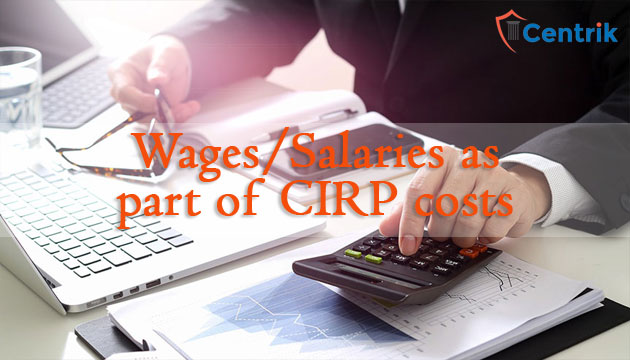
Status as on- 19/01/2023
Section 53(1)(a) of the Insolvency and Bankruptcy Code, 2016, (hereinafter referred to as “the Code”) claims for wages or salaries of those workers or employees who really worked in the Corporate Insolvency Resolution Process (Hereinafter referred to as “CIRP”) must be paid in full before any further claims may be made. Section 53(1)(b)(c) of the Code, will apply to any remaining claims.
All amounts owed to any worker or employee from provident funds, pension funds, or gratuity funds are expressly excluded from the scope of assets subject to liquidation under Section 36(4)(iii) of the Code, and as a result, the liquidator shall have no claim to such amount.
Facts of the Case
In the present case of “Sunil Kumar Jain v. Sundaresh Bhatt”, the NCLAT had rejected an appeal brought by the workers/employees of ABG Shipyard Limited against the contested NCLT order denying them any relief with regard to their claim relating to salary, which they claimed for a period encompassing CIRP and the prior period. Appellants filed an appeal in opposition to the NCLAT’s ruling.
The Court had to decide whether to treat and/or include in the CIRP costs those workers’ salaries and pay who had not performed any work at all throughout the CIRP.
Supreme Court Held
The Court noted that provided it is established and proven that the Interim Resolution Professional/Resolution Professional managed the operations of the corporate debtor as a going concern during the CIRP and that the concerned workmen/employees of the corporate debtor actually worked during the CIRP, the wages/salaries of the concerned workmen/employees of the corporate debtor for the period during CIRP may be included in the CIRP costs.
The Court held that in such an eventuality, the wages/salaries of those workmen/employees who actually worked during the CIRP period when the resolution professional managed the operations of the corporate debtor as a going concern shall be paid treating it and/or considering it as part of CIRP costs and the same shall be payable in full first as per Section 53(1)(a) of the Code.
The Court additionally ruled that the claims filed/to be submitted by the workers of the appellant must be decided upon and taken into consideration by the Liquidator even if RP has not submitted the claims towards the wages/salaries as part of CIRP costs.
The Liquidator has to consider and adjudicate
- Whether the corporate debtor was a going concern during the CIRP;
- How many workmen/employees actually worked during the CIRP while the corporate debtor was a going concern?
Conclusion
This is a welcome decision given by the Apex Court as it rules that the wages/salaries of only those employees who worked during the Corporate Insolvency Resolution Process are to be included in the Corporate Insolvency Resolution Process costs.
Disclaimer: The above article is based on the personal interpretation of the related orders and laws. The readers are expected to take expert opinions before relying upon the article. For more information, please contact us at ibc@centrik.in




 join For Updates
join For Updates